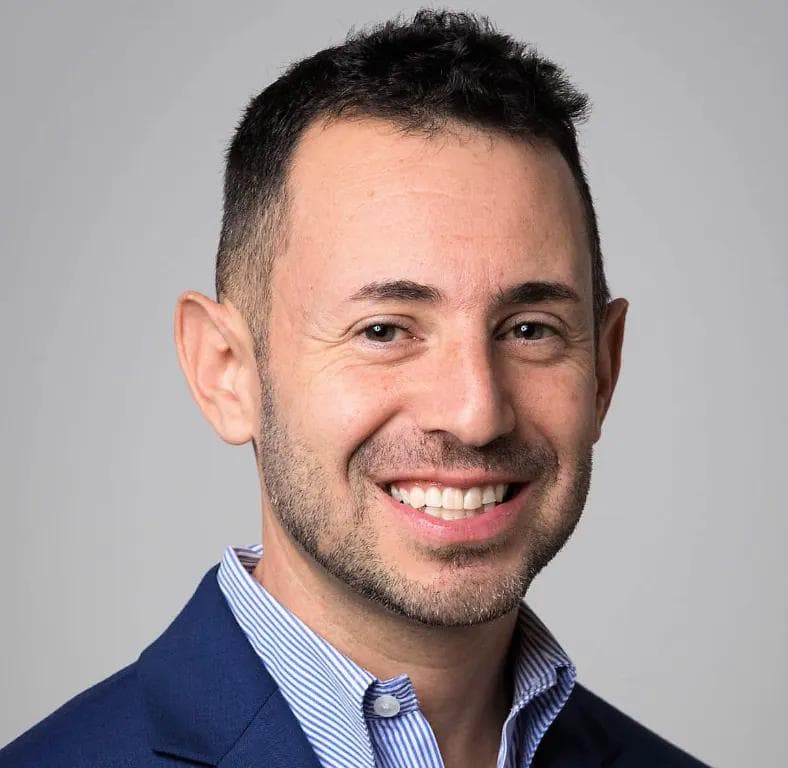
Prestigious Summer Programs: Top Programs for High Schoolers
IVY’s College Admissions Team frequently discourages students from summer programs. Many - maybe even most - fail to impress college admissions departments or improve your chances of acceptance to an elite college or university. There are a select few, however, that are worth your time. John Morganelli provides a list of 30 and why these programs work.

Photo by Chokniti Khongchum
Summer programs are fun. Occasionally educational. And rarely have any impact on your college application. (Sorry). If you’re aiming for a Top 25 school in the United States, a summer program has to be extremely selective (think as hard as getting into an ivy league) for it to matter on your college application. We’ve compiled a list of 30 prestigious summer programs for high school students that could help your chances of getting into a Top 25 school. You’ll find John’s take a few of them (but don’t take that to mean only those are the “really” good ones - these are all excellent programs).
A Few Notes on Top Programs for High Schoolers
The key to picking a program is choosing one that aligns with your long term academic goals. If you’re not familiar with the Morganelli Method (also known as the PAGE acronym), let us introduce you: developed by IVY’s Director of College Admissions, John Morganelli, the Morganelli Method is a college admission framework designed for elite college admissions. You can find an indepth overview here.
At the heart of the Morganelli Method is the ethos - or throughline - that connects all that you do in your high school years and frames it in terms of college admissions and future goals. For any of these programs to help your college application, it must align with your ethos and academic goal. For instance, getting into a prestigious humanities program is not going to help your application if you want to study engineering in college - or vice versa. Beware of choosing anything prestigious for prestige’s sake if it does not align with your goals or strengths. And if you’re interested in doing one of these programs but feel unsure what your goals are, or which one might fit best, reach out to one of our college admissions counselors.
Why These Programs Matter
Programs like RSI, TASS, and PROMYS don’t just look like college admissions - they function as a preview. Gaining acceptance requires many of the same attributes: intellectual depth, initiative, and demonstrated excellence. And while these programs don’t guarantee college admission, they often attract the very students who end up at top-tier institutions. It’s a classic chicken-or-egg scenario: do these programs help students get into elite colleges, or do the kinds of students who get into elite colleges also win spots in these programs? The answer is both. Either way, participation signals you’re already operating at a highly competitive level.
30 Prestigious Summer Programs (Listed A-Z)
Annenberg Youth Academy for Media and Civic Engagement (USC)
Overview: A selective, three-week summer intensive at USC for rising seniors focused on media literacy, civic engagement, and communication in a democratic society. Students explore journalism, public discourse, and social impact storytelling.
Dates: Mid June through Early July
Location: USC University Park Campus
Application Timeline or Details: https://annenberg.usc.edu/about/annenberg-youth-academy
Open To: High school students from the Los Angeles area
Cost: Free
John’s Take: Annenberg is ideal for students building a narrative around media ethics, journalism, digital advocacy, or civic storytelling. It supports the Ethos layer of the Morganelli Method by refining voice and public messaging skills. Particularly valuable when it connects back to a thematic research question about representation or media influence - and when it yields deliverables like op-eds or podcasts.
Anson L. Clark Scholars Program
Overview: Hosted by Texas Tech University, this prestigious seven-week research program accepts 12 highly qualified high school juniors and seniors. Each scholar is paired with a faculty mentor to conduct an independent research project across a variety of academic disciplines, culminating in a final presentation.
Dates: Late June through Early August
Location: Texas Tech University, Lubbock, TX
Application Timeline or Details: https://www.depts.ttu.edu/clarkscholars/ApplicationDetails.php
Open To: Must be 17 by the start of the program; accepts upcoming Seniors as well as Seniors who will have graduated by the time they start the program.
Cost: Free
Boys Nation / Girls Nation
Overview: Only open to those who first participate in Boys State and Girls State (see below), Boys Nation and Girls Nation are weeklong, advanced-level government simulations held in Washington, D.C. Two students from each state are selected to represent their delegation in mock Senate proceedings, meet federal officials, and gain deeper insights into national governance and civic responsibility.
Dates: Typically July
Location: Varies by State
Application Timeline or Details: https://www.legion-aux.org/ala-girls-nation and https://register.legion.org/boysnation/stateeligibility
Open To: Upcoming Seniors; Must be a U.S. citizen or permanent resident to apply; Must apply in your resident state.
Cost: Typically Free
Boys State / Girls State
Overview: Sponsored by the American Legion and held in every U.S. state, these government simulation programs immerse students in mock state governments, emphasizing leadership, civic education, and public speaking. Selection is often competitive and tied to school nominations. Programs are one week long.
Dates: Typically May or June
Location: Varies by State
Application Timeline or Details: https://www.legion-aux.org/ala-girls-state and https://register.legion.org/boysnation/stateeligibility
Open To: Upcoming Seniors; Must be a U.S. citizen or permanent resident to apply; Must apply in your resident state.
Cost: Typically Free
John’s Take: These programs are valuable context-building activities—especially for students with Perspective or academic interest in law, public policy, or civic leadership. They may not align with a full academic Goal unless paired with a follow-up project (e.g., voter access research or local government internship). Best when integrated into a broader social science or advocacy narrative.
Broad Summer Scholars Program
Overview: Offered by the Broad Institute of MIT and Harvard, this program provides high school students with a chance to engage in cutting-edge genomics research. Scholars work full-time on research projects under the mentorship of scientists and participate in workshops, lectures, and career panels focused on biomedical science.
Dates: End of June through Early August
Location: The Broad Institute, Cambridge, MA
Application Timeline or Details: https://www.broadinstitute.org/partnerships/education/k-12-outreach/broad-summer-scholars-program
Open To: Upcoming Seniors who attend a high school in Massachusetts within commuting distance of the program
Cost: Free + Stipend
Economics for Leaders (EFL)
Overview: EFL is a one-week program hosted at universities nationwide by the Foundation for Teaching Economics. It teaches high school students core economic principles alongside leadership skills through simulations, group work, and lectures. Students learn to apply economic reasoning to real-world decision-making and policy challenges.
Dates: Weeklong programs throughout June, July, and early August
Location: Universities throughout the U.S. and virtual
Application Timeline or Details: https://fte.org/students/costs-scholarships/
Open To: Students who are currently sophomores or juniors or the equivalent. U.S. and International students may apply.
Cost: $900 - $2600; scholarships available
Hampshire College Summer Studies in Mathematics (HCSSiM)
Overview: HCSSiM is an intensive six-week program for mathematically talented high school students. Based at Hampshire College, it offers immersive exploration in advanced mathematical topics through daily problem sets, lectures, and collaborative discovery. Emphasis is placed on creative thinking and proof-based reasoning.
Dates: Mid-June through Early August
Location: Hampshire College in Amherst, MA
Application Timeline or Details: https://hcssim.org/
Open To: No specific age as long as you meet the math requirements; most students are sophomores or juniors when they apply; open to US and international students.
Cost: $6500; financial aid available
High School Honors Science, Math and Engineering Program (HSHSP)
Overview: Held at Michigan State University, HSHSP is a seven-week research program for rising seniors interested in science, math, or engineering. Students conduct original research under faculty guidance, participate in seminars, and present their findings in formal papers and presentations.
Dates: Mid-June through Early August *Note: HSHSP is not offered every summer so check the website for details
Location: Michigan State University; East Lansing, MI
Application Timeline or Details: https://education.msu.edu/HSHSP
Open To: US students entering their senior year (apply as a junior)
Cost: $4000
HK Maker Lab
Overview:HK Maker Lab is a six-week engineering design and entrepreneurship program for high school students interested in biomedical engineering. Hosted by Columbia Engineering, students learn prototyping, CAD modeling, and entrepreneurship while solving real-world biomedical challenges in teams.
Dates: Early July through early August
Location: Columbia University, New York, NY
Application Timeline or Details: https://outreach.engineering.columbia.edu/content/hk-maker-lab
Open To: Upcoming Juniors and Seniors in a New York public or charter school and can demonstrate financial need
Cost: Free
Iowa Young Writers’ Studio
Overview:Hosted by the University of Iowa, this prestigious creative writing program offers students workshops in poetry, fiction, and creative nonfiction. The two-week residential program attracts a national cohort and is led by experienced instructors and Iowa MFA affiliates.
Dates: Two sessions, Mid to Late June and Mid to Late July
Location: University of Iowa, Iowa City, IA
Application Timeline or Details: https://iyws.clas.uiowa.edu/2-week-summer-residential-program
Open To: Students who will have completed 10th, 11th, or 12th grade by the time the program begins
Cost: $2500
John’s Take: For students building a humanities or creative writing-centered narrative, Iowa is a definitive Activity that reinforces intellectual voice. While it doesn’t directly support a research question, it elevates Perspective and craft. In the Morganelli Method, this can anchor the writing portfolio, serve as a lead-in to personal storytelling in essays, or support narrative depth in applications to Arts & Sciences divisions.
JCamp (Asian American Journalists Association)
Overview: JCamp is a six-day intensive journalism program for high school students of diverse backgrounds. Sponsored by the Asian American Journalists Association, it provides hands-on experience in reporting, photography, and media ethics while exposing students to professional journalists and newsroom operations.
Dates: Late July or Early August
Location: Varies; past locations include Seattle, WA and Austin, TX
Application Timeline or Details: https://www.aaja.org/programs-and-initiatives/jcamp/#FAQ
Open To: Current high school sophomores and juniors. Open to US and international students, but only focuses on US-based journalism.
Cost: Free, including US-based airfare to and from JCamp
Jackson Laboratory Summer Student Program
Overview: This highly selective 10-week research internship is focused on genetics and genomics. Participants conduct independent research alongside scientists at one of the Jackson Laboratory campuses (Maine or Connecticut) and contribute to real-world biomedical research in areas such as cancer, aging, and rare diseases.
Dates: End of May through early August
Location: The Jackson Laboratory in Bar Harbor, Maine or The Jackson Laboratory for Genomic Medicine in Farmington, Connecticut
Application Timeline or Details: https://www.jax.org/education-and-learning/high-school-students-and-undergraduates/learn-earn-and-explore
Open To: High school seniors and undergraduate college students. Must be 18 by the start of the program and (in most cases) a US citizen or permanent resident.
Cost: Free. Students receive a $6500 stipend + room, board, and travel expense paid
MathILy (Mathematics Infused with Levity)
Overview: MathILy is a five-week residential summer program for students who are deeply interested in mathematics. Hosted at Bryn Mawr College, the program emphasizes advanced problem solving, abstract mathematical thinking, and collaboration in a fun and intellectually rigorous environment.
Dates: Late June through Late July
Location: Bryn Mawr College, Bryn Mawr, Pennsylvania (near Philadelphia)
Application Timeline or Details: https://mathily.org/app.html
Open To: Current high school students
Cost: $5300; financial aid available
MITES (MIT Introduction to Engineering and Science)
Overview: MITES is a free, six-week residential program at MIT for rising seniors from underrepresented backgrounds. It focuses on rigorous STEM coursework, academic enrichment, and professional development.
Dates: Late June through Early August
Location: MIT
Application Timeline or Details:https://mites.mit.edu/discover-mites/apply-to-mites/prepare-your-application-mites-summer-and-mites-semester/
Open To: High School Juniors; Must be a U.S. citizen or permanent resident to apply.
Cost: Free
John’s Take: This program aligns powerfully with narrative goals related to access, equity, and representation in STEM. In the Morganelli structure, MITES excels in both Perspective and Activity, particularly if a student uses it to reflect on systemic inequities in science education or innovation. It also supports future deliverables and a compelling Ethos rooted in impact.
Notre Dame Summer Scholars
Overview: This two-week academic enrichment program at the University of Notre Dame allows students to dive into a subject area of interest—ranging from global health to literature to data science—through college-level courses taught by university faculty. It includes lectures, group projects, and a culminating presentation.
Dates: Two sessions offered, one in June, one in July
Location: University of Notre Dame, South Bend, IN
Application Timeline or Details: https://precollege.nd.edu/summer-scholars/eligibility-and-application-requirements/
Open To: Current sophomores and juniors; US and International students welcome
Cost: ~$5,000; some financial aid available
Pomona College Academy for Youth Success (PAYS)
Overview: PAYS is a free, multi-year college prep and academic enrichment program for high-achieving, low-income high school students. Centered at Pomona College, it includes intensive academic seminars, writing instruction, cultural exposure, and residential life.
Dates: Mid-June through Mid-July + school year opportunities
Location: Pomona College, Claremont, CA
Application Timeline or Details: https://www.pomona.edu/administration/draper-center/pays/faqs
Open To: Ninth graders attending high school in Los Angeles, Orange, Ventura, Riverside and San Bernardino Counties.
Cost: Free
John’s Take: PAYS is a strong foundational experience for students developing an academic Perspective on access, equity, or community uplift. While not research-based, it’s a powerful Activity that sets the stage for future deliverables or thematic inquiry. In the Morganelli sequence, PAYS can serve as a precursor to local investigation and academic direction refinement.
Princeton Summer Journalism Program (PSJP)
Overview: PSJP is a 10-day, fully funded journalism program for high-achieving, low-income high school juniors. Participants attend workshops, learn reporting techniques, meet with journalists from major outlets, and produce published work. The program also offers intensive college admissions counseling.
Dates: Mid-July through early August
Location: Princeton University, Princeton, NJ
Application Timeline or Details: https://psjp.princeton.edu/about-program/frequently-asked-questions
Open To: Current Juniors (at time of application) who attend a high school in the US or Puerto Rico.
Cost: Free
PROMYS (Program in Mathematics for Young Scientists)
Overview: Hosted by Boston University, PROMYS immerses students in deep mathematical theory and abstract problem-solving. It is designed for mathematically gifted high school students and includes a research component.
Dates: Late June through Early August
Location: Boston University
Application Timeline or Details: https://promys.org/programs/promys/for-students/
Open To: Sophomores, Juniors, or Seniors; International students may apply but U.S. students are prioritized. Several international programs exist in Europe and India.
Cost: Up to $7,000, depending on financial aid award (free for eligible low income students)
John’s Take: PROMYS is designed for students whose narratives center on abstract thinking, mathematical theory, or theoretical computer science. In the Morganelli framework, it elevates both Academic Goal and Activity, serving as a high-credibility signal for intellectual rigor. Best leveraged when paired with an independent inquiry or local application of theoretical models, PROMYS deepens narrative authenticity for students drawn to pure, proof-based exploration.
Research in Science & Engineering (RISE)
Overview: RISE is a six-week program that offers upcoming high school seniors the opportunity to conduct university-level research in science and engineering under the mentorship of BU faculty. Participants either join the Internship track (full-time lab research) or Practicum track (structured group research in computational neurobiology). RISE is highly selective and academic in nature, focusing on lab immersion and scientific process.
Dates: Late June through Early August
Location: Boston University
Application Timeline or Details: https://www.bu.edu/summer/high-school-programs/rise-internship-practicum/
Open To: Upcoming Seniors (apply Junior year; participate summer before Senior Year); Must be U.S. citizen or permanent resident.
Cost: $5700 + room/board and fees; limited financial assistance
Research Science Institute (RSI)
Overview: RSI, hosted by MIT, is one of the most prestigious STEM programs in the world. It combines coursework in scientific theory with hands-on research under the guidance of leading scientists. Admission is ultra-competitive and reserved for top STEM students globally.
Dates: Late June through Early August
Location: MIT
Application Timeline or Details: https://www.bu.edu/summer/high-school-programs/rise-internship-practicum/how-to-apply/
Open To: Students entering their final year of high school (typically apply junior year and attend summer before senior year). US and International students are eligible.
Cost: Free
John’s Take: RSI is the gold standard for STEM validation. For students with a strong Academic Goal in science or engineering, it offers unmatched credibility. In the Morganelli Method, RSI builds the highest-quality Activity and can reinforce a thematic research question already in development. Ideal for those preparing to tell a senior-year research-based story.
Ross Mathematics Program
Overview: The Ross Program is one of the oldest and most rigorous summer mathematics programs in the U.S. Over six weeks, participants deeply explore number theory and abstract mathematical reasoning through daily problem sets and lectures. The program emphasizes discovery-based learning and proof-writing.
Dates: Mid-June through late July
Location: Two sites: Otterbein University in Columbus, OH and Rose-Hulman Institute of Technology in Terre Haute, Indiana (participants only attend one location)
Application Timeline or Details: https://rossprogram.org/participants/faq/
Open To: Current high school students. US and International students are eligible.
Cost: $7,000; financial aid available
Science Internship Program (SIP)
Overview: SIP offers high school students the chance to work on STEM research projects alongside UC Santa Cruz researchers. Over 10 weeks, students may explore astrophysics, marine biology, genomics, and more, producing tangible outcomes like research posters and presentations. SIP emphasizes collaboration and independent inquiry.
Dates: Mid June through Early August
Location: UC Santa Cruz
Application Timeline or Details: https://sip.ucsc.edu/applying-to-sip/
Open To: Upcoming Sophomores, Juniors and Seniors; US and International Students
Cost: $4915 + room/board + transportation; financial aid available
Simons Summer Research Program
Overview: This prestigious seven-week research program allows high school students to conduct independent research in science, math, or engineering under the mentorship of Stony Brook University faculty. Students contribute to ongoing research projects and present their work at a closing symposium.
Dates: Late June through early August
Location: Stony Brook University, Stony Brook, NY
Application Timeline or Details: https://www.stonybrook.edu/simons/
Open To: Current high school Juniors who are US citizens or permanent residents
Cost: Tuition is free, however students are in charge of room and board (~$2300) or commuting expenses
Stanford Institutes of Medicine Summer Research Program (SIMR)
Overview: SIMR places students in biomedical research labs at Stanford University for eight weeks. Participants gain hands-on experience in disciplines like bioengineering, stem cell research, neuroscience, and immunology. The program includes mentorship from faculty and researchers, a poster symposium, and exposure to real-world scientific careers.
Dates: Early June through Late July
Location: Stanford University
Application Timeline or Details: https://simr.stanford.edu/application.html
Open To: Students who are Juniors or Seniors at time of application and at least 16 years old by program start date. Only open to US students and legal residents. Priority given to those who live in the San Francisco Bay Area.
Cost: Free (Includes Stipend)
*Note: This program does not provide housing of any kind and finding housing for 8 weeks is extremely difficult (and expensive). Thus the program prioritizes Bay Area residents.
Stanford Medical Youth Science Program (SMYSP)
Overview: SMYSP is a five-week, tuition-free program for low-income and underrepresented students interested in medicine and health sciences. Hosted by Stanford School of Medicine, the program features faculty lectures, hospital internships, anatomy lab work, and public health research projects, with a strong emphasis on college and career readiness.
Dates: Late June through Late July
Location: Stanford University
Application Timeline or Details: https://med.stanford.edu/odme/high-school-students/smysp.html
Open To: Current high school juniors in Northern California
Cost: Free (Includes Stipend)
Stanford University Mathematics Camp (SUMaC)
Overview: SUMaC is a four-week, highly selective mathematics enrichment program for advanced high school students. Participants explore university-level topics such as abstract algebra, number theory, or cryptography through a rigorous curriculum that emphasizes proof-based reasoning and mathematical creativity. Students choose between two intensive courses and engage in collaborative problem-solving.
Dates: Mid June through Late July
Location: Residential Program at Stanford University, or Virtual Program Online (Pick one or the other)
Application Timeline or Details: https://sumac.spcs.stanford.edu/sumac-admissions
Open To: Students in 10th or 11th grade at time of application. US and International students are eligible.
Cost: $3,550 (online), $8,250 (residential)
Summer Academy for Math and Science (SAMS)
Overview: SAMS is a rigorous six-week program for underrepresented students interested in STEM. Participants take advanced courses in math and science, attend faculty-led seminars, and complete group research projects. The program also offers college readiness workshops and fosters a cohort experience on the Carnegie Mellon campus.
Dates: Late June to Early August
Location: Carnegie Mellon University - Pittsburgh, PA
Application Timeline or Details: https://www.cmu.edu/pre-college/academic-programs/sams.html
Open To: Current high school Juniors (participate summer after Junior year); open to U.S. citizens or permanent residents
Cost: Free, but must demonstrate financial need to be considered
The Summer Science Program (SSP)
Overview: SSP offers residential summer programs in astrophysics, biochemistry, and genomics at sites including Caltech, Purdue, and UNC Chapel Hill. Students engage in intensive team-based research projects, such as determining asteroid orbits or solving protein structures. The curriculum combines rigorous coursework, hands-on experiments, and data analysis over six weeks.
Dates: Varies
Location: Multiple locations
Application Timeline or Details: https://ssp.org/getting-started/
Open To: Current high school Juniors (participate summer after Junior year); US and International Students
Cost: Up to $9800, but the program is heavily subsidized and works on a sliding fee scale.
Telluride Association Summer Seminar (TASS)
Overview: TASS offers humanities-based seminars at institutions like Cornell and the University of Michigan. Focus areas include critical Black and ethnic studies, philosophy, and political theory. Fully funded and highly selective, it fosters rigorous academic discourse in a residential setting.
Dates: Typically June through July
Location: Cornell University, University of Maryland, or University of Michigan
Application Timeline or Details: https://tellurideassociation.org/our-programs/high-school-students/tass-application-timeline/
Open To: Sophomores and Juniors; US and International Students are eligible.
Cost: Free
John’s Take: This program is a standout for students building a humanities or social science ethos, particularly those exploring themes of equity, race, and justice. Within the Morganelli Method, TASS contributes directly to Perspective and Activity, and can even anchor a student’s Ethos if tied to a localized research question or advocacy project. It demonstrates intellectual voice and advanced community engagement.
Tufts Biomedical Engineering Research Scholars (TUBERS)
Overview: TUBERS is a six-week research-focused summer program where students work in Tufts University labs on projects in biomedical engineering. Participants engage in hands-on lab research, attend professional development workshops, and gain mentorship from Tufts faculty and graduate students.
Dates: July through Mid-August
Location: Tufts University, Medford, MA
Application Timeline or Details: https://www.tuftstubers.com/
Open To: Students who will be 16 by program start and who can prove residency in the Boston area (see website for specific locations accepted).
Cost: Free




